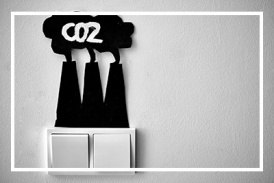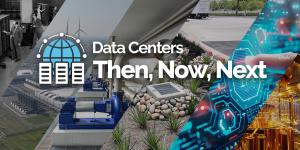Data Centers: Then, Now, Next – Engineering the Future of Digital Infrastructure
Shaping the Future With the Next Generation of Data Center Design
CA, UNITED STATES, May 22, 2025 /EINPresswire.com/ -- Data centers are the invisible force behind our connected world. From streaming your favorite show to enabling real-time AI applications, these facilities are the digital backbone of modern life. But data centers didn’t always look like the sleek, high-efficiency campuses we see today. The industry has undergone a dramatic transformation—from clunky mainframes housed in vast rooms to highly optimized hyperscale facilities designed for sustainability and rapid scalability. As we look ahead, what does the future hold for data center development? Kier + Wright (K+W) is helping answer that question with innovative design and engineering solutions built for what’s next.Then: The Birth of Data Centers
The first data centers were rooms filled with massive mainframes that required extensive cooling and dedicated staffing to operate. In the 1990s, the rise of the internet and enterprise computing led to the development of purpose-built data centers. These facilities were the first step toward the modern hyperscale infrastructure we see today.
Back then, efficiency wasn’t a priority—hardware needed vast amounts of energy, and cooling solutions were rudimentary at best. But as demand for digital storage skyrocketed, the industry began to shift towards more strategic and sustainable engineering solutions.
Now: The Backbone of the Digital Age
Today, data centers are more than just server storage—they are mission-critical hubs that power AI, cloud computing, financial transactions, and nearly every aspect of digital life. Modern facilities prioritize reliability, speed to market, and energy efficiency.
"Data centers require precision, speed, and scalability to meet the demands of an ever-evolving digital landscape," says Emad Sarieddine, PE, Vice President at K+W. "From site development to infrastructure optimization, these facilities depend on engineering solutions that streamline construction, enhance operational efficiency, and ensure long-term resiliency."
As data centers grow in complexity, the need for sustainable infrastructure and resilient site design has become essential. These facilities must be engineered to handle increasing power demands, optimize cooling efficiency, and integrate scalable solutions that support future growth. From site constraints to utility coordination, every aspect of development requires a strategic approach to ensure reliability, sustainability, and operational efficiency.
"Modern data centers must be designed with efficiency, scalability, and sustainability at their core. Integrating green infrastructure, advanced stormwater management, and resilient site design is critical to meeting the demands of next-generation digital infrastructure," adds Mark Knudsen, PE, QSD, Vice President.
Next: The Future of Data Centers
As demand continues to grow, data center developers face new challenges. Emerging trends like AI-driven automation, quantum computing, and edge computing are pushing engineers to rethink traditional designs. Sustainability will also be a defining factor, as regulations and public demand call for facilities that minimize carbon footprints while maximizing efficiency.
"The next generation of facilities need to be designed not just for current demands but for the evolving landscape of digital infrastructure, ensuring they remain efficient and scalable for years to come,” says Ryan Amaya, PLS, Vice President.
What’s Next for Data Center Development?
The next generation of data centers will focus on:
AI-Optimized Operations: Automated cooling and power distribution to improve efficiency.
Renewable Energy Integration: Solar, wind, and battery storage solutions to power operations sustainably.
Edge Computing Expansion: Moving processing power closer to end-users to reduce latency.
Autonomous Data Centers: AI-driven facilities that self-regulate and minimize human intervention.
At K+W, we don’t just engineer data centers—we partner with developers to build infrastructure that meets the demands of an ever-changing digital world. Whether you’re planning a hyperscale expansion, edge deployment, or sustainable retrofits, our team is ready to help you navigate the future of data center development.
Partner with K+W for Your Next Data Center Project
The facilities built today will define the digital world for decades to come. Are you ready to develop a future-proof data center? Contact K+W to discuss how we can bring your next project to life.
Kier + Wright | Excellence in Engineering Since 1972 |
Global Youth Leaders Unite in Cape Town to Champion Compassion, Ubuntu, and Interfaith Action at Youth IF20
Captain Compliance Launches On-Prem AI Tools via OpenAI's GPT-OSS to Power Advanced Data Privacy & Regulatory Automation
Ferguson Law Firm’s Cody Dishon Secures Texas’ #1 Medical Malpractice Verdict and Earns Top Verdict Honor
Więcej ważnych informacji
 Jedynka Newserii
Jedynka Newserii

 Jedynka Newserii
Jedynka Newserii

Ochrona środowiska

A. Bryłka (Konfederacja): Ograniczenie emisyjności nie musi się odbywać za pomocą celów klimatycznych. Są absurdalne, nierealne i niszczące europejską gospodarkę
W lipcu br. Komisja Europejska ogłosiła propozycję nowego celu klimatycznego, który zakłada ograniczenie emisji gazów cieplarnianych o 90 proc. do 2040 roku w porównaniu do stanu z 1990 roku. Został on zaproponowany bez zgody państw członkowskich, w przeciwieństwie do poprzednich celów na 2030 i 2050 rok. Polscy europarlamentarzyści uważają ochronę środowiska i zmiany w jej zakresie za potrzebne, jednak nie powinny się odbywać za pomocą nieosiągalnych celów klimatycznych.
Polityka
Dramatyczna sytuacja ludności w Strefie Gazy. Pilnie potrzebna dobrze zorganizowana pomoc humanitarna

Według danych organizacji Nutrition Cluster w Strefie Gazy w lipcu br. u prawie 12 tys. dzieci poniżej piątego roku życia stwierdzono ostre niedożywienie. To najwyższa miesięczna liczba odnotowana do tej pory. Mimo zniesienia całkowitej blokady Strefy Gazy sytuacja w dalszym ciągu jest dramatyczna, a z każdym dniem się pogarsza. Przedstawiciele Polskiej Akcji Humanitarnej uważają, że potrzebna jest natychmiastowa pomoc, która musi być dostosowana do aktualnych potrzeb poszkodowanych i wsparta przez stronę izraelską.
Polityka
Wśród Polaków rośnie zainteresowanie produktami emerytalnymi. Coraz chętniej wpłacają oszczędności na konta IKE i IKZE

Wzrosła liczba osób, które oszczędzają na cele emerytalne, jak również wartość zgromadzonych środków. Liczba uczestników systemu emerytalnego wyniosła w 2024 roku ponad 20,8 mln osób, a wartość aktywów – 307,5 mld zł – wynika z najnowszych danych Urzędu Komisji Nadzoru Finansowego (UKNF). Wyraźny wzrost odnotowano w przypadku rachunków IKE i IKZE, na których korzyść działają m.in. zachęty podatkowe. Wpłacane na nie oszczędności są inwestowane, a tym samym wspierają gospodarkę i mogą przynosić atrakcyjną stopę zwrotu.
Partner serwisu
Szkolenia

Akademia Newserii
Akademia Newserii to projekt, w ramach którego najlepsi polscy dziennikarze biznesowi, giełdowi oraz lifestylowi, a także szkoleniowcy z wieloletnim doświadczeniem dzielą się swoją wiedzą nt. pracy z mediami.







.gif)

 |
| |
| |
|